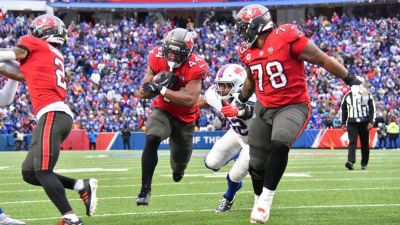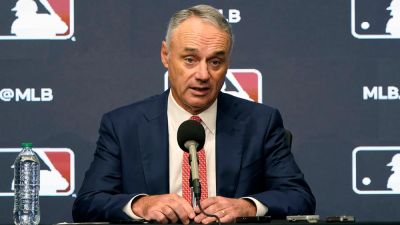Paul Tagliabue, NFL commissioner of 17 years who led era of riches and expansion, dead at 84
Paul Tagliabue, who helped bring labor peace and riches to the NFL during his 17 years as commissioner but was criticized for not taking stronger action on concussions, died Sunday from heart failure. He was 84.
NFL spokesman Brian McCarthy said Tagliabue's family informed the league of his death in Chevy Chase, Maryland.
Tagliabue, who had developed Parkinson's disease, was commissioner after Pete Rozelle from 1989 to 2006. He was elected to the Pro Football Hall of Fame as part of a special centennial class in 2020. Current Commissioner Roger Goodell succeeded Tagliabue.
"Paul was the ultimate steward of the game — tall in stature, humble in presence and decisive in his loyalty to the NFL," Goodell said in a statement. "I am forever grateful and proud to have Paul as my friend and mentor. I cherished the innumerable hours we spent together where he helped shape me as an executive but also as a man, husband and father."
News of Tagliabue's death came shortly before seven games kicked off Sunday. The Miami Dolphins and Minnesota Vikings held a moment of silence for Tagliabue and Marshawn Kneeland, the Dallas Cowboys' defensive tackle who died on Thursday.
Tagliabue oversaw a myriad of new stadiums and negotiated television contracts that added billions of dollars to the league's bank account. Under him, there were no labor stoppages.
During his time, Los Angeles lost two teams and Cleveland another, migrating to Baltimore before being replaced by an expansion franchise. Los Angeles eventually regained two teams.
Tagliabue implemented a policy on substance abuse that was considered the strongest in all major sports. He also established the "Rooney Rule," in which all teams with coaching vacancies must interview minority








